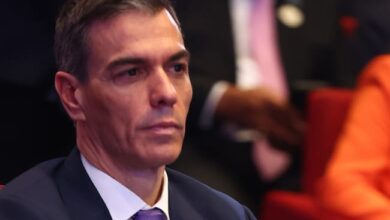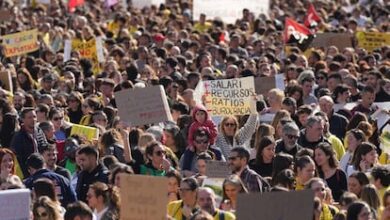
The annual reception honoring the national holiday took place in the Spanish capital, and this year it was not only ceremonial but also notably tense. The reason was the absence of Santiago Abascal, leader of the Vox party. His decision not to attend the event at the Palacio Real immediately became a topic of discussion among politicians and guests.
In the corridors, talk persisted that Vox is gaining momentum and beginning to influence the country’s political landscape. This is particularly evident in regions where the Partido Popular (PP) has traditionally held strong positions. In Andalusia, for example, Vox’s growing influence is already raising concern among local authorities. PP leaders did not hide their unease; their informal conversations at the reception were full of hints about potential shifts in the balance of power.
Santiago Abascal had notified the king in advance about his absence, emphasizing that he did not wish to be in the same room as Prime Minister Pedro Sánchez. As usual, the monarch refrained from commenting on the politicians’ actions, choosing to maintain his neutrality. Sánchez himself, after the official part, left the palace quickly without engaging with journalists. The following day, he was scheduled to fly to Egypt for an international meeting on Middle East peace issues.
Ministers also did not linger at the reception. The exceptions were Minister of Culture Ernest Urtasun and Minister of Transport Óscar Puente, who spent more time speaking with the press. Representatives of the judiciary, such as Constitutional Court President Cándido Conde-Pumpido and the head of the Court of Auditors, Enriqueta Chicano, were open to engaging with guests.
In the absence of the Prime Minister and most cabinet members, attention shifted to PP leader Alberto Núñez Feijóo and the president of Andalusia, Juan Manuel Moreno Bonilla. Feijóo took the opportunity to point out that Spain Day is an official holiday, expressing surprise at Abascal’s absence, hinting that such behavior was previously characteristic only of Bildu representatives and independent politicians. He also emphasized that Abascal’s invitation came from the King, not from the government.
Within the PP, a thorough analysis of Vox’s electoral prospects continues, although Feijóo avoids drawing public attention to it. For his part, Moreno Bonilla does not plan to call early elections in Andalusia, despite possible changes in the parliamentary majority. He made it clear that he does not intend to share power with Vox, even if they might influence the outcome of the vote.
At the same time, a scandal has erupted in Andalusia related to a mass failure in the breast cancer screening system, adding to tensions in regional politics. Amid these developments, debate over the future of Vox and its impact on traditional parties continues unabated in Madrid and other regions. Behind the scenes, politicians and experts agree: none of the autonomous communities governed by the PP, including Madrid, can feel secure.
In recent days, debates have reignited in the capital over the abortion law, which was upheld by the Constitutional Court. For Feijóo, this issue has long been settled, but he is clearly unhappy to see it return to public discussion. He is more concerned about criticism of the government’s foreign policy and corruption scandals involving Sánchez’s entourage.












